- Two civilians killed, two injured in junta airstrike on Ramree village
- Bo Nagar’s defection raises security fears for resistance forces in Myanmar’s heartland
- Weekly Highlights from Arakan State (Feb 2 to 8, 2026)
- Freedom of expression curtailed in resistance-controlled areas, report finds
- Conflict leaves Arakan’s historic pagodas in ruins as restoration stalls
Over 500,000 acres of paddy flooded in northern Arakan State
Since the first week of August, the water levels of the Kaladan River and the Laymyo River have risen due to continuous rains, and surrounding paddy fields have been flooded for about four days, according to farmers.
08 Aug 2023
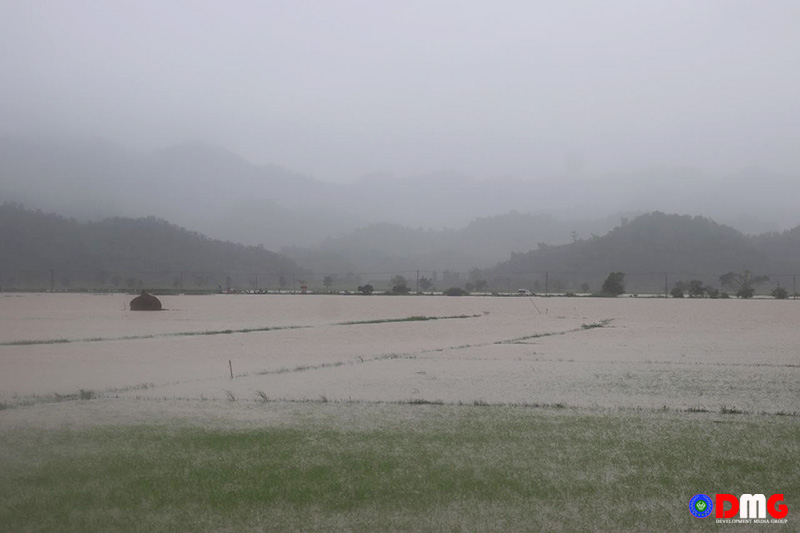
DMG Newsroom
8 August 2023, Kyauktaw
More than 500,000 acres of paddy fields in Arakan State’s Kyauktaw, Ponnagyun, Mrauk-U, Minbya, Buthidaung, Rathedaung and Maungdaw townships have been inundated by floodwaters, according to the Arakan State Farmers’ Union.
Since the first week of August, the water levels of the Kaladan River and the Laymyo River have risen due to continuous rains, and surrounding paddy fields have been flooded for about four days, according to farmers.
“Thousands of acres of paddy plantations in low-lying parts of northern Arakan State have been flooded. Paddy fields in the highlands are not inundated by floodwaters,” said U Aung Kyaw Mya, spokesman for the Arakan State Farmers’ Union.
Some paddy fields have been damaged by the flooding, and farmers said that if the water remains over the days ahead, the sown paddy fields and paddy plants may be damaged or killed.
“The water has not yet receded. … If the water recedes, we are only worried about how the paddy plants will be left,” said U Maung Hnaung, a local farmer from Pyinyaung Village in Minbya Township.
According Myanmar’s military regime, more than 70,000 baskets of paddy seeds stored by farmers in Sittwe, Rathedaung, Maungdaw, Ponnagyun, Kyauktaw, Mrauk-U, Minbya and Pauktaw townships were destroyed by Cyclone Mocha, which made landfall over Arakan State on May 14.
The flooding comes as the latest challenge in a difficult year for farmers in Arakan State.
“Even if the paddy plants reappear because the water recedes, there is no condition to see them properly. We are in a situation where we will face many losses,” said U Maung Saw Mya, a local farmer from Thayettapin Village in Kyauktaw Township.
During this year’s growing season, paddy yields in Arakan State reportedly decreased by as much as 50 percent due to a combination of climate change, high input costs, and soaring fertiliser prices.
“Farmers are very upset. Last year the paddy yield was very bad. We will have to wait and see if the paddy yield this year will be like last year or not,” said U Maung Hla Thein, in-charge of the Arakan State Farmers’ Union (Mrauk-U branch).
Less than 900,000 out of 1.2 million acres of arable land in Arakan State could be cultivated last year due to the rising costs of farming, adverse weather conditions and other factors. There are many farmers in Arakan State who are abandoning farming to instead travel abroad for work.




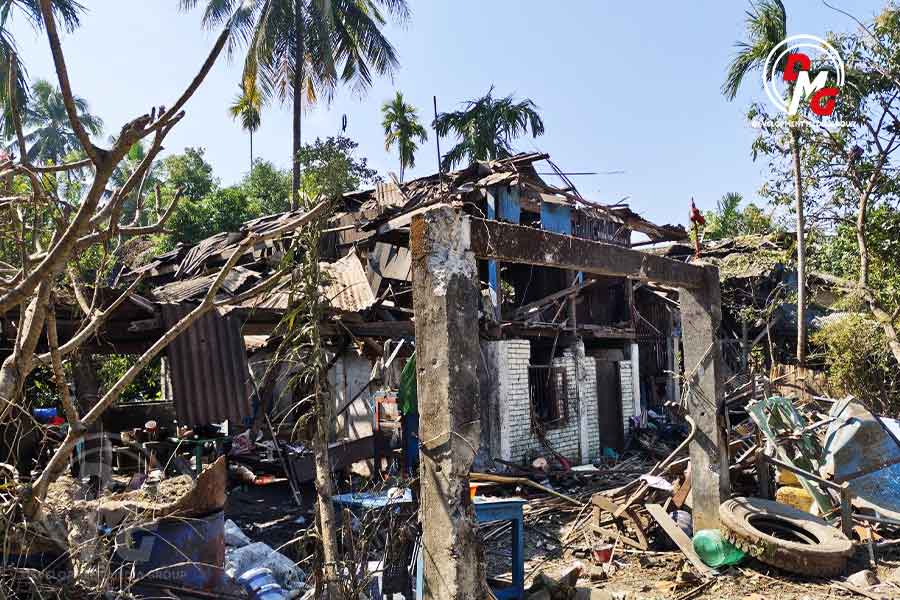

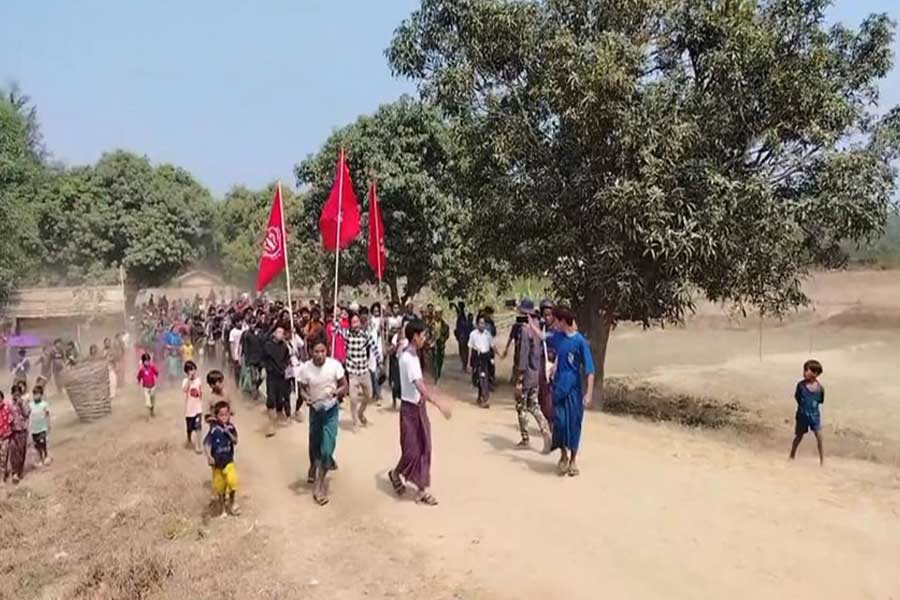
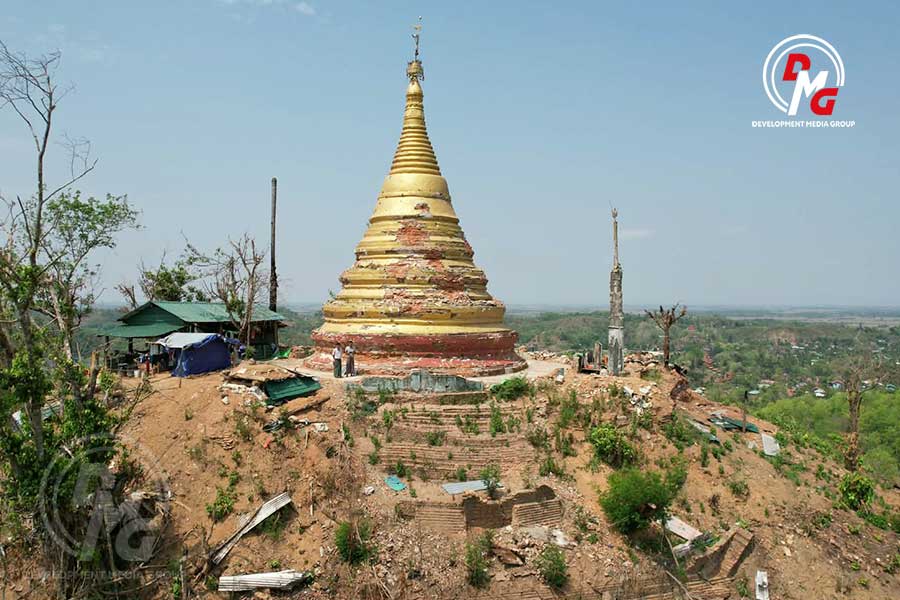
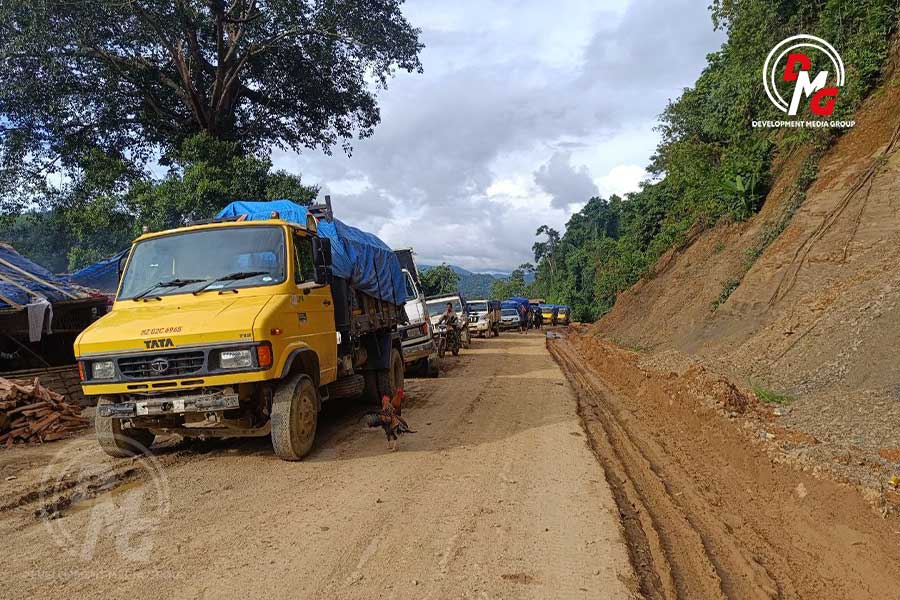







.jpg)
